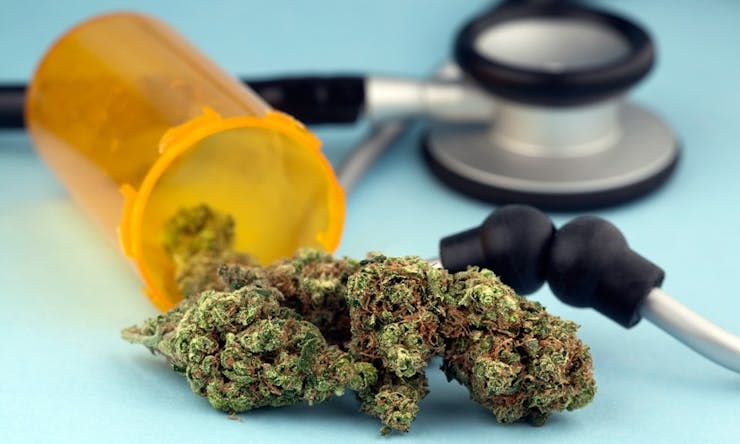Can weed really help your body beat the coronavirus? Or are researchers just blowing smoke? Here’s what we know.
Before COVID hit in early 2020, evidence of cannabis’ efficacy as a healing plant was largely anecdotal. Vietnam veterans snuck it home to curb PTSD; Bay Area activists distributed it to those coping with AIDS and cancer in the ‘80s and ‘90s. And patients with various ailments today rely on medical marijuana to treat pain, nausea, and many other issues.
But a new study published in the Journal of Cannabis Researchindicates that active cannabis users actually fared better after contracting COVID-19 than non-users, including lower ICU admission rates and need for ventilation intervention. Unlike a recent CBD study that was mis-represented as a miracle cure for COVID by some on social media, this study actually finds some evidence that regular cannabis smokers suffered less severe symptoms of the virus.
Authored by researchers at the David Geffen School of Medicine at the University of California, Los Angeles, the study, which is not yet peer-reviewed, analyzed at 1,831 adult patients admitted to two UCLA hospitals between February 2020 and February 2021.
Most significantly, the study found that “ICU admission was 12 percentage points lower (p = 0.018) and intubation rates were 6 percentage points lower (p = 0.017) in cannabis users,” even after adjusting for age, sex, BMI, and tobacco smoking history.
Researchers used a multitude of analytic markers, including the “NIH COVID-19 Severity Score, need for supplemental oxygen, ICU (intensive care unit) admission, mechanical ventilation, length of hospitalization, and in-hospital death for cannabis users and non-users,” in addition to comorbidities like tobacco smoking status, diabetes, heart, and lung diseases.
Overall, active cannabis users (defined as cannabis use via smoking, vaping or ingestion within a month of admission) made up only 4% (69 people) of the sample size. Cannabis users also had better health outcomes overall than non-users, even when adjusted for their younger age, their tobacco use, and the fact that they received fewer COVID-adjacent therapies like steroids and antibiotics.

But don’t start the “I told you sos” just yet. The authors admit that their findings have limitations.
For one, they were only able to use retrospective data where cannabis use was self-reported, leaving room for inaccuracies as well as a lack of data on alcohol and use of other substances.
The study also notes other research indicating that heavy use and cannabis-use disorders are linked to worse health outcomes and higher risks of COVID breakthrough cases.
For now, most experts agree that smoking cannabis can still impart lung damage, even while users indicate lower inflammatory markers. But as we’ve reported before, opinions on cannabis and its effects on the immune system remain mixed.
Federal prohibition still inhibits cannabis-centric research, and even those that get peer-reviewed and published face limitations with access, funding, and data.
While the findings look good here, don’t assume that hitting the bong will replace a vaccine or save you from exposure to a new variant. Only time and new research will tell what exactly cannabis can do for us and our health.





